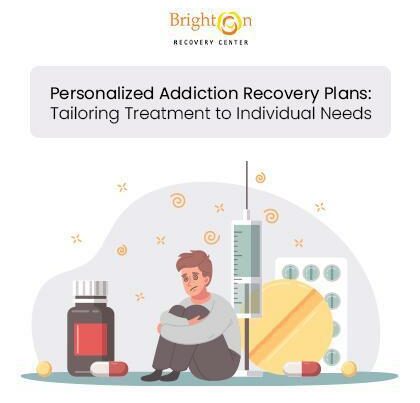Vital Roles of Family Members in Sandy Addiction Recovery

There are several people or groups who often play a major role in addiction recovery, and at or near the top of the list in most situations is family. Family members of those battling substance abuse or any other form of addiction are often central figures in helping promote recovery — but if they’re approaching things incorrectly, they might instead serve as burdens to the process or even enablers of addiction, which should be avoided however possible.
At Brighton Recovery Center, we’re proud to provide several quality addiction recovery services in Sandy and other parts of Utah, including everything from social detox to inpatient and outpatient rehab programs. We’re experienced in not just assisting those struggling with addiction, but also their families — showing family members the healthy ways they can support their loved one while steering them clear of certain enabling pitfalls. Here are some examples of both kinds of behavior from family members, plus some words on why you should shoot for only positive forms of support if someone you love is struggling with addiction.
Examples of Negative Family Roles
Sadly, some issues of substance abuse or other forms of addiction help form a dysfunctional family system, one where members take on “roles” to help them cope — often unknowingly. Here are some of these typical roles that might be seen:
- The Mascot: The Mascot is the family member who attempts to provide comic relief for the family that’s hurting, often in the form of aiming humor at the person suffering from addiction. This might take the form of making jokes at their expense, or constantly trying to get them to lighten up and have some fun.
- The Hero: The Hero is the opposite of the Mascot, often taking on the role of caretaker and trying to do everything they can to make life easier for the person with addiction. This might involve cooking, cleaning or other major forms of assistance, but it lessens the burden on the person struggling with addiction.
- The Enabler: The Enabler is a family member who serves to make it much easier for someone to continue their behavior, whether through direct actions like providing them with money or hiding liquor bottles or indirect forms of assistance, like constantly taking their side.
- The Lost Child: The Lost Child often finds themselves in a situation where they feel forced to take on minimal roles in the family system while others are busy, either with addiction recovery or coping with other problems caused by addiction. They might be asked to handle regular household responsibilities, for instance, but also might take the role of “latchkey kid” and be told to watch younger siblings while their parent(s) are busy.
- The Scapegoat: Finally, the scapegoat is the person in the family who is blamed. While this person is sometimes the one suffering from addiction, it may also be someone else in the family. They’re often the one who’s blamed for everything that goes wrong, and they shoulder the majority of the family’s dysfunction.
Examples of Positive Family Roles
While they don’t have buzzword names like many of the roles above, there are multiple ways caring family members can play a positive, impactful role in the recovery of their loved one, including:
- Supportive — But Firm — Caregiver: While some forms of “caregiving” would border dangerously on enabling behavior, it’s absolutely possible to provide support to someone suffering from addiction in your family without making every decision for them. Whether you’re providing them with rehab, taking care of their children or otherwise, this is positive behavior that will help promote recovery.
- Encouraging other support: Whether in the form of attending support groups with them, getting them connected with a therapist or otherwise, encouraging your loved one to get as much support as they can is an incredibly positive role to play in their recovery.
- Creation of healthy boundaries: By setting healthy boundaries and limits on things like finances, time or other resources, you’re creating an environment where your loved one can focus on getting better without feeling overwhelmed. This is a critical role for family members to play in addiction recovery.
Families and Adolescent Addiction
Because of their mental state at the time, teens and adolescents who are dealing with any form of addiction, whether it’s substance abuse or behavioral, are often more impacted by their family’s roles than adults. Here are some typical ways families impact the lives of teenagers with addiction problems:
- The Mascot can help teens cope with feelings or guilt or shame over their actions through humor, but it may also fail to convey the importance of sobriety and recovery in a way that makes an impact.
- The Hero can be a major source of support and stability for teens, offering them a safe place to land and helping promote recovery, while the Enabler can make it much easier for them to continue down their path of addiction.
- The Lost Child is often forced into a more responsible role at an early age, taking care of siblings or helping out around the house, which can lead to feelings of isolation and loneliness. They may also struggle with a feeling of not being good enough.
- The Scapegoat is often the teen who is blamed for everything that goes wrong in the family and is constantly in trouble. This can lead to feelings of anger, self-hatred and worthlessness — and in some cases may give way to addiction. Parents should take care not to allow this to happen.
If you’re a parent of teens and notice any of these trends developing, look for healthy ways to address them.
For more on the vital role family plays in the addiction recovery process, or to learn about any of our addiction treatment programs in Sandy or other parts of Utah, speak to the caring staff at Brighton Recovery Center today.



